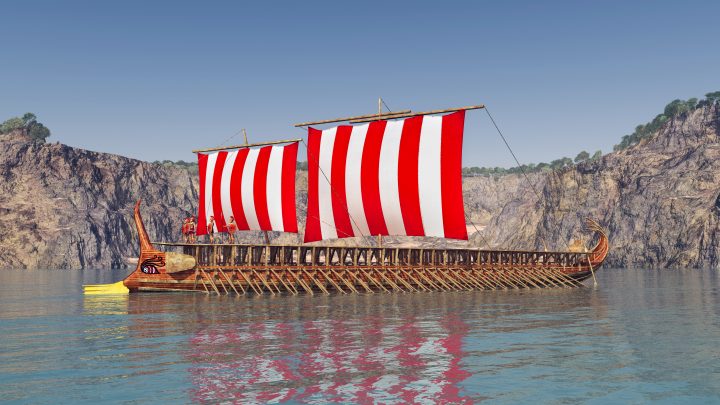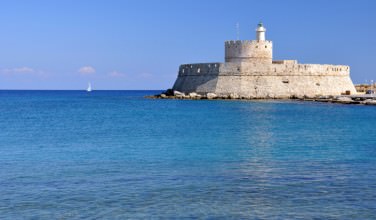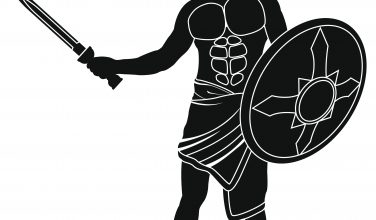Battle of Sybota – Important Naval Battle of Ancient Greece
Comments Off on Battle of Sybota – Important Naval Battle of Ancient Greece
 When it comes to the history of Ancient Greece, there are pivotal moments that stand out. The Peloponnesian War was one of these events. The Battle of Sybota, a naval conflict found between the city-states of Corinth and Corcyra, is considered to be one of the catalysts of the war. These two major city-states were in conflict because Corinth, at the time, was one of the largest city-states in Ancient Greece and was trying to gain even more momentum. The ensuing battle came about as tensions developed. Here’s more information about it:
When it comes to the history of Ancient Greece, there are pivotal moments that stand out. The Peloponnesian War was one of these events. The Battle of Sybota, a naval conflict found between the city-states of Corinth and Corcyra, is considered to be one of the catalysts of the war. These two major city-states were in conflict because Corinth, at the time, was one of the largest city-states in Ancient Greece and was trying to gain even more momentum. The ensuing battle came about as tensions developed. Here’s more information about it:
Background of the Battle of Sybota
The Corinthian colony of Corcyra did not want to be under the influence of the Corinthians. The result was a dispute with Corinth. As an enemy of Corinth, the alliance of Corcyra was with Spartan. Ten ships were sent by Athens to Corcyra for the reinforcement of the fleet. The Corcyraeans were given orders not to engage in battle with the Corinthia fleet unless the Corinthians tried to land. Xenoclides was the commander of the Corinth fleet, and made arrangements to set sail for Corcyra.
Gathering the Fleets
Both Corcyra and Corinth gathered their fleets as tensions began to escalate. The fleet for Corcyra were gathered under Eurybatus, Aisimides and Miciades with a base established on the Sybota islands. The Athenian commanders Proteas, Diotimus, and Lacedaimonius sailed with this particular fleet in support of Corcyra. When the Corinthian ships arrived, the Corcyreans formed the battle lines in an attempt to give themselves the advantage.
Battle of Sybota Begins
Both sides engaged javelin-throwers, archers, and hoplites during the battle. Thucydides believed these resources were old fashioned. Both sides tried to board the ships of their opponents as opposed to sinking the other fleet by ramming the ships. The result was basically a land battle fought on the sea. Since the Corinthians did not try to land, the Athenian ships did not initially fight in the battle.
The Corcyraean fleet positioned on the left chased the right-wing Corinthian fleet to the coastal camp. The Corcyraeans then burned the camp. The success of the left-wing Corinthian fleet forced the Athenians to help their allies. The Corinthian fleet achieved victory in spite of the intervention of the Athenians. The fleet then proceeded through the wreckage of the ships. Instead of taking prisoners, the fleet began killing the survivors of the defeated ships. Not everyone was killed, resulting in numerous prisoners being captured.
Aftermath of the Battle
The Athenian and Corcyra fleets then sailed to Corcyra to provide defense for the island. The Corinthian fleet retreated almost as soon as they arrived due to the imminent arrival of over 20 Athenian ships commanded by Glaucon. The following day, another battle was threatened by the Athenian ships if a landing on Corcyra was attempted by the Corinthians.
To avoid a second battle, the Corinthian fleet retreated. The victory was claimed by both the Corcyraeans and Corinthians. The victors of the first battle were the Corinthians. A Corinthian occupation of the Corcyra island was avoided by the Corcyraeans. Shortly after the battle, the Battle of Potidea was fought. This was when a formal war declaration was issued by Sparta.
Both sides claimed to have been victorious in the battle. After the battle, the Corinthians still had 120 ships of the initial 150. The Athenian and Corcyraean fleet had 80 ships remaining of the initial 130.
Source:
Categorized in: Ancient Greek History
This post was written by Greek Boston





